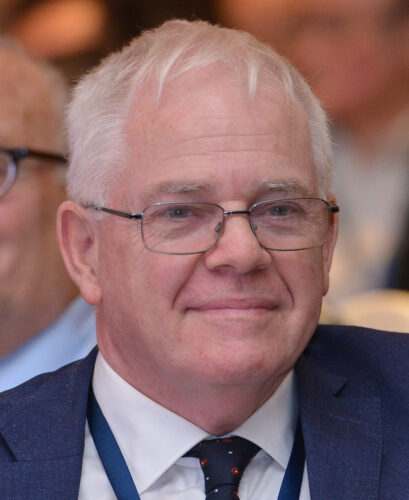LSST’s Deputy CEO speaks with Oxford University professor about the pandemic’s perpetual impact on learning and teaching life
By Kunal Chan Mehta | Article Date: 6 April 2021

In the face of the coronavirus pandemic, online and blended learning are now an educational fact of life. But, all too agreeably, for abundant aspects of society, the Covid-19 pandemic has served a knockback to the education system. But how have our teaching systems and methods changed? Further, how have these been received? To gain a better understanding, Mr Mohammed Zaidi, LSST’s Deputy CEO, speaks with Simon Marginson, a Professor of Higher Education at the University of Oxford, and Director for the Centre for Global Higher Education.
[MZ] The societal impact of Covid-19 is multitudinous and has affected, and continues to affect, profound social travail. Consequently, what do you believe the Higher Education (HE) sector must do when it comes to fine-tuning the purpose and quality of HE teaching (in the UK)?
[SM] Use all online or all face to face approaches (i.e. not combined classes in real time). Improve online pedagogy and give major attention to students’ connection issues.
For me, I find there to be a determination in formulating an ongoing exit-strategy from the Covid-19 crisis — though for this, I consider there to be no quick-answer — and yet I wonder precisely what the HE sector will be exiting to. Do you share my thoughts here?
Largely back to where it was prior to the pandemic, though with more use of online only classes, better online classes, and more use of online meeting formats. The main teaching format will again be face to face however.
There is a vast amount of discussion about considering the student as a ‘whole person’, but in fact a pandemic makes them – well – not fully ‘whole’? What needs to be done now – in terms of outcome consideration – to the former ‘whole student’ approach?
More attention to the mental health and connectedness of students.
The last year has been marked not only by the Covid-19 pandemic but by ambiguous, challenging and changing times. Do you find Covid-19 has thus not only enforced change – but exposed how much such change is overdue?
The change that is ‘overdue’ is towards common good values and social justice, and human centred and ecologically centred economies. The pandemic makes the point about humanism, and about the consequences of habitat loss in a natural world which is overwhelmingly transformed by humans, and it shows that the Anglo-American form of higher education (a competing market) and political economy (politics is a competing market of self-interested persons without regard for public responsibility or the general welfare, government is not fundamentally responsible for people’s survival, it’s up to them, etc) is bankrupt, but whether it has ‘enforced change’ is yet to be seen.
I always ask how our teaching can remain transformational for students – and how we might need to transform it for this to happen. Have you shared this same question for your own work?
I try to give them tools to work out the world for themselves.
The pandemic has forced prolertarianisation, especially amid teenagers. How do you feel this will impact ‘glocalising’ – an important research factor across HE?
Teenagers are in touch with the world to an unprecedented extent, the problem is sustaining their localities and local conditions of life and future.
Do you sense that digital and online migration is provoking significant dysfunctionality to pedagogical roles?
No.
But have we all not shaped digital education under the panic and pressure of emergency conditions?
Initially, but not after that. People have had more than enough time to develop these modes.
I have always been deeply concerned about the ‘maternal wall’, where – wherever relevant – female academics are disproportionately involved in household and pastoral activities. Do you believe that females have been the most deprived by the home-based and online transition?
Yes. The gender effects are severe. Women students as well as women academics and researchers are disproportionately affected because the pandemic magnifies the role of the homeplace and caring functions.
Do you feel the HE sector may re-emerge in better shape for having had some of its fundamental conventions and assumptions about learning and teaching confronted?
In some cases. In other cases it will be in worse shape because of the financial problem of sustaining institutions and students under pandemic conditions.
Do you feel that the transition to remote teaching has empowered lecturers in terms of the ease of control of the teaching environment when digital and online migration causes social disconnection?
Through the negative effect of deprivation, there has been a fundamental assertion of the value of real place sociability in the classroom, and between students, and the importance of sites – buildings, facilities, contexts – for the human experience of institutional relationships. Online techniques have improved. Online connectivity has been shown to be a deep problem in practical teaching and in socio economic terms, and especially in countries such as India where the countryside is still outside the modern world. Don’t overstate the transformative effects – people were doing that from March 2020 onwards.
Educational transition at LSST
Mr Syed Zaidi, LSST’s CEO and founder, commenting on the interview asserted: ‘The Covid-19 pandemic is still with us, and precisely how this will affect higher education in the long run, in addition to other aspects of life and work, is yet to be seen. But one thing is for sure: the pandemic has changed education forever. LSST has found from its students that remote learning offers an entire new set of challenges and opportunities for exceptional skill development. Thus, as a community, we must maintain our intellectual curiosity and remain – as we have for more than a year – resilient when confined or limited to our home environments.’
Contact kunal.mehta@lsst.ac for any questions or comments on this article.




